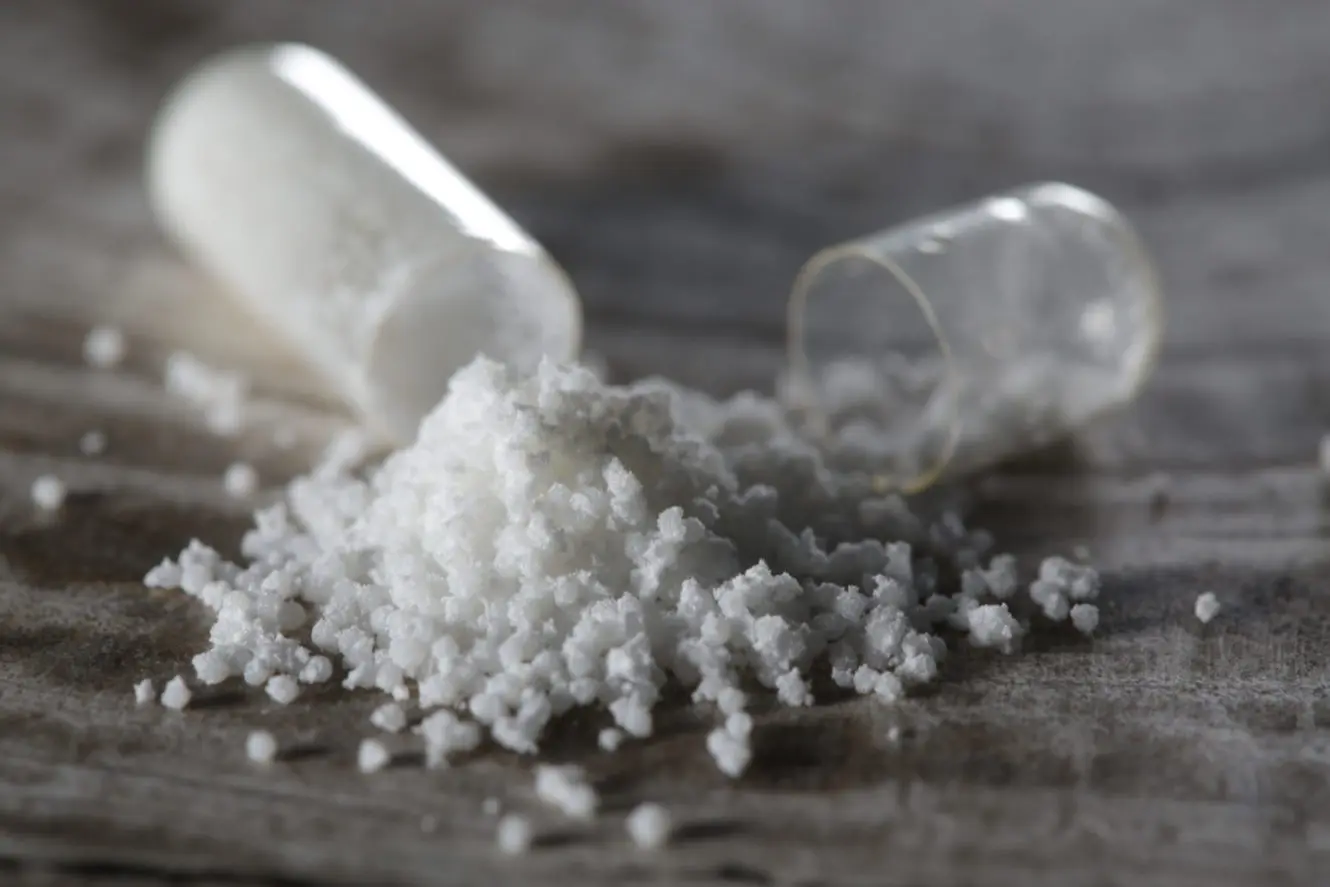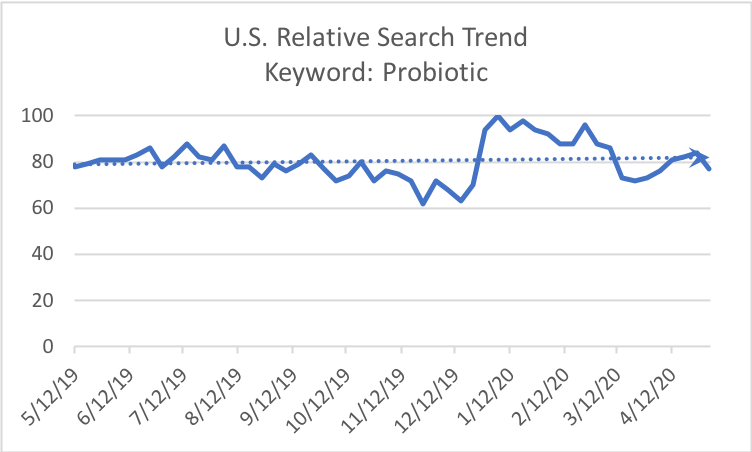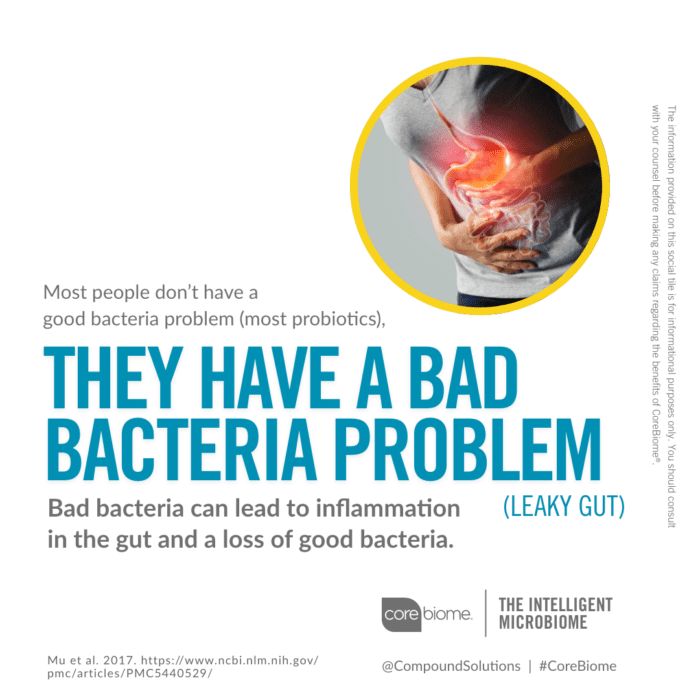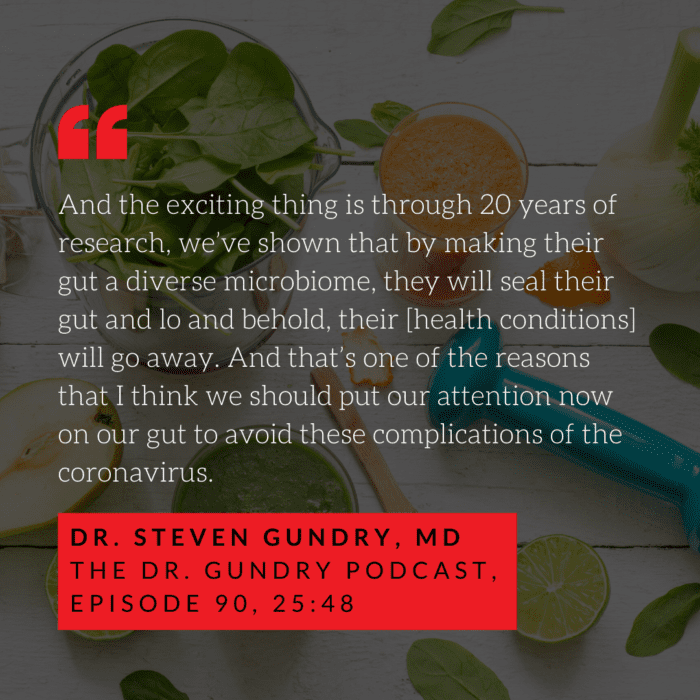The Complete Guide to Short Chain Fatty Acids (SCFA) and CoreBiome®

Short chain fatty acids (SCFAs) are arguably the most significant of the three fatty acids for human wellness, but they haven’t taken enough of the limelight. But before we get to SCFAs, let’s talk about all three fatty acids.
Based on the number of carbon atoms, we can classify fatty acids by their length: short-chain, medium-chain, or long-chain. Short-chains are fewer than 6 carbons, medium-chains are 6-12 carbons, and long-chains are greater than 12 carbons.
Short, medium and long-chain fatty acids all deserve attention. Medium-chain fatty acids have become mainstream in the last five years with the popularization of MCT (medium-chain triglycerides). Long-chain fatty acids are beneficial to health, as well, and include avocados, olive oil, and fish, as examples.
Here’s why short-chain fatty acids are super exciting. –> For more even info about SCFAs and postbiotics, download our guide here.
Why Do We Want Short Chain Fatty Acids?
There is nothing more important to our gut health than short chain fatty acids (SCFAs). No probiotic. No prebiotic. Nothing. Now is a great time to reflect on this.
SCFAs are produced when the good bacteria ferment fiber in your colon – they provide energy for the cells in your colon [1]. About 95% of short chain fatty acids in your body are acetate, propionate, and butyrate.
All health starts in the gut.
The probiotic market has enjoyed boom times for at least 15 years. But sales of probiotics have stagnated, signaling a need for improvement. This new “improved” era of innovation is broader and encompasses all gut health, not just probiotics. Hence, the rising sales of prebiotics and fiber, and hot trends like prebiotics and postbiotics.

The goal of gut health is balance (homeostasis). What regulates gut balance is SCFAs. SCFAs rise in the colon from fiber from the consumption of vegetables, some prebiotics, and a unique SCFA called CoreBiome®, the #1 postbiotic.
Given that 95% of Americans consume too little fiber [2], it’s no wonder there is an epidemic of dysbiosis (unbalanced gut microbiome). When dysbiosis and inflammation exist in the gut, small holes develop in the gut lining. This phenomenon is commonly referred to as leaky gut. Thankfully, we already know what helps heal a damaged gut lining.
What Protects and Helps Heal Our Gut?
Short-chain fatty acids. [3] No longer do we need to throw a bunch of probiotics at an inflamed gut riddled with bad bacteria. Using SCFAs and probiotics allows for a more targeted and effective “synbiotic” combination.

The year 2020 marked the start of a new era of gut health revolving around SCFAs.
SCFAs such as CoreBiome® are like a multivitamin for your gut.
They help create a healthy environment for your good bacteria to thrive while also preventing excess levels of bad bacteria to enter the body. Nothing is more important to your gut than short chain fatty acids (SCFAs).
Given SCFAs are the foundation of our gut health, it’s easy to imagine how they can have fast-acting positive impacts on gut conditions, as well as conditions associated with the gut.
The gut is like the orchestra director. It is directing and communicating with numerous systems including our immune system, brain, heart, muscle and skin, to name a few.
It’s easy to choose vitamin C when we think of immunity, or a nootropic for the brain or a lotion for a skin condition. But we cannot optimize any of these systems until we’ve healed our gut lining. So the foundation of immunity, as well as brain, heart or skin health is ALSO short-chain fatty acids.
So what is the key to boost Short Chain Fatty Acids?
Fiber and CoreBiome®.
The undigested fibers from consuming vegetables ferment in the colon to produce SCFAs. CoreBiome® is a SCFA itself, and bioavailable in the colon. You might see sodium butyrate in the market, but don’t be fooled. Not just any SCFA works. CoreBiome® is bioavailable in the colon, where it is needed.
For the past decade, we have all witnessed the confusing marketing war over how many billions of bacteria or how many strains of probiotics could fit into a capsule. This new decade marks a resurgence of innovation in which short chain fatty acids are the foundation of gut health.
Facts about SCFA
Here are more fast-facts about SCFAs:
- More than 90% of serotonin, the mood and stress management neurotransmitter, resides in gut
- The gut and brain are linked by the vagus nerve
- More than 70% of immune cells reside in the gut
- A SCFA & vitamin A maintain immune homeostasis, and vitamin A keeps skin firm and healthy
- A rate limiting factor in muscle loss as we age is a SCFA
- A SCFA is the fuel for colon cells, which is the source of your gut health
- The gut lining is only one cell thick
- The whole digestive tract is ~30 feet long, and starts at the esophagus and ends at the anus
- The gut microbiome is made of trillions of bacteria and thousands of different bacterial strains
- The gut microbiome can weigh up to five pounds
- A healthy gut typically means
- A sealed gut lining
- High microbial diversity
- “Good” bacteria including bifidobacteria, faecalbacterium prausnitzii, akkermansia muciniphila or the short chain fatty acid–butyrate.
Interested in learning more? Download our Postbiotic Revolution Guide to take advantage of the gut health movement and to better serve your customers looking for a solution.
References
- David Rios-Covian, et. al., “Intestinal Short Chain Fatty Acids and Their Link With Diet and Human Health”, Feb 17, 2016, https://pubmed.ncbi.nlm.nih.gov/26925050/.
- Diane Quagliani, MBA, RDN, LDN, et. al., “Closing America’s Fiber Intake Gap”, Jul 7, 2016, https://www.ncbi.nlm.nih.gov/pmc/articles/PMC6124841/.
- Kelly Cushing, et al., “Butyrate and Mucosal Inflammation: New Scientific Evidence Supports Clinical Observation”, August 27, 2015, https://www.ncbi.nlm.nih.gov/pmc/articles/PMC4816278/.







3 Comments
December 5, 2020 at 5:46 pm
Incredible
July 20, 2021 at 2:27 am
Interesting article I always start to worry when I feel the end of the article coming up, I’m always hoping that such helpful information is not followed by the purchase of a new product.
I have terrible gut health I’ve had stomach problems all my life as far back as I can remember. Kept moving forward reading this article in hopes that you would provide us with a list of vegetables that are fibrous and good for gut health. Feel free to pass it on to me
July 20, 2021 at 3:21 pm
Thanks for your comment Judith. We have a great list of foods to consider near the bottom of this article: https://compoundsolutions.com/what-is-postbiotic-butyrate-and-where-can-i-find-it/ … ultimately, we all need more fiber, but for folks with low fiber tolerance, there are finally some good options in postbiotics. Good luck with your journey!!